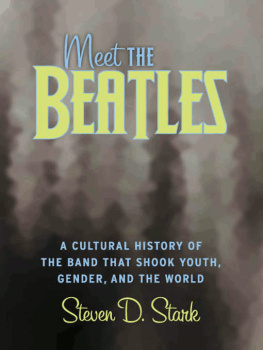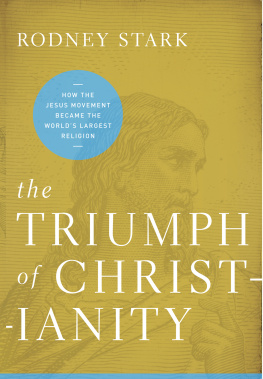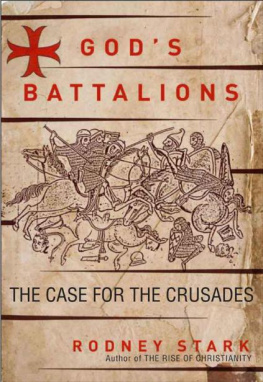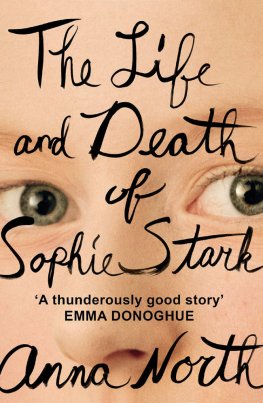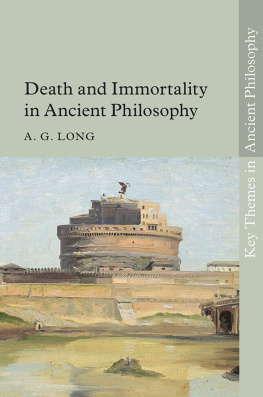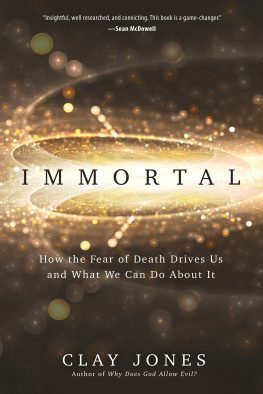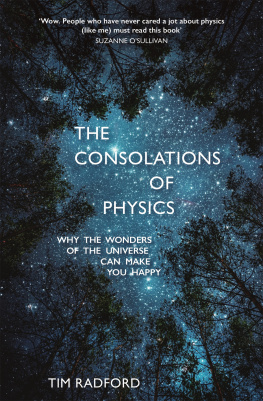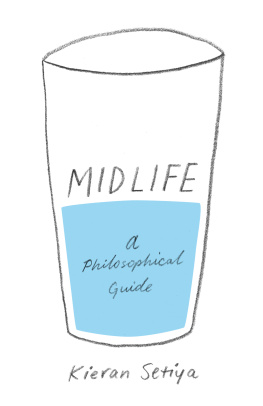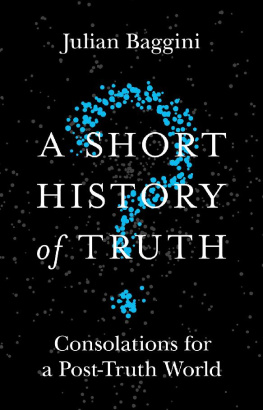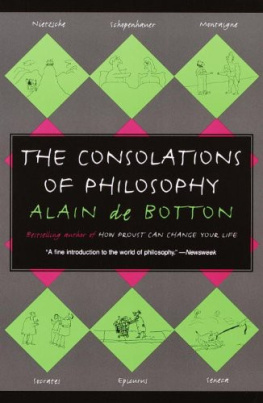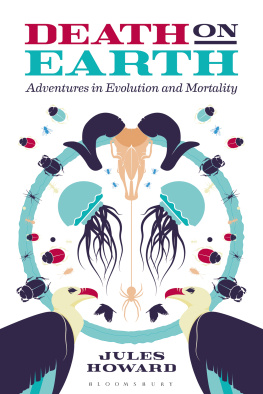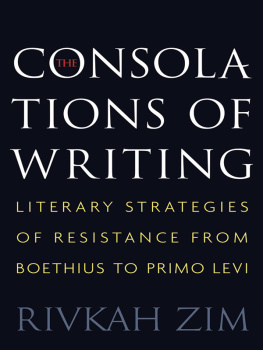THE CONSOLATIONS OF MORTALITY
ANDREW STARK
The Consolations of Mortality
Making Sense of Death
Yale UNIVERSITY PRESS
NEW HAVEN AND LONDON
Published with assistance from the foundation established in memory of James Wesley Cooper of the Class of 1865, Yale College.
Copyright 2016 by Yale University.
All rights reserved.
This book may not be reproduced, in whole or in part, including illustrations, in any form (beyond that copying permitted by Sections 107 and 108 of the U.S. Copyright Law and except by reviewers for the public press), without written permission from the publishers.
Yale University Press books may be purchased in quantity for educational, business, or promotional use. For information, please e-mail (U.K. office).
Set in Janson Oldstyle and Futura Bold types by Newgen North America.
Printed in the United States of America.
Library of Congress Control Number: 2016934661
ISBN 978-0-300-21925-8 (cloth : alk. paper)
Quotation from Stopping by Woods on a Snowy Evening from the book The Poetry of Robert Frost, edited by Edward Connery Lathem. Copyright 1923, 1969 by Henry Holt and Company, LLC. Copyright 1951 by Robert Frost. Used by permission of Henry Holt and Company, LLC. All rights reserved.
Excerpt from Aubade from Collected Poems, by Philip Larkin.
Copyright 1988, 2003 by the Estate of Philip Larkin. Reprinted by permission of Farrar, Straus and Giroux, LLC.
(Sittin on) The Dock of the Bay, words and music by Otis Redding and Steve Cropper. Copyright 1968 (Renewed) 1975 Irving Music Inc. All rights for the world outside of the U.S. controlled and administered by WB Music Corp. and Irving Music, Inc. All rights reserved. Used by permission of Alfred Music and Hal Leonard Corporation.
Intimacy, words and music by Edgar Bronfman Jr. and Bruce Roberts. 1995 Boozetunes and Bir. Copyright 1992 Reservoir Media Music and WB Music Corp. All rights on behalf of Boozetunes administered by WB Music Corp. All rights reserved. Used by permission of Alfred Music and Hal Leonard Corporation.
Cats in the Cradle, Words and Music by Harry Chapin and Sandy Chapin. 1974 (Renewed) Story Songs, Ltd. All Rights Administered by WB Music Corp. All Rights Reserved. Used By Permission of Alfred Music.
A catalogue record for this book is available from the British Library.
This paper meets the requirements of ANSI/NISO Z39.48-1992 (Permanence of Paper).
10 9 8 7 6 5 4 3 2 1
For Deborah
CONTENTS
ACKNOWLEDGMENTS
I am grateful to Hamish Clark, Isaac Clark, Fardowsa Hashi, Vladimir Helwig, Gavin Lee, and Yuki Nishimura for their superb research assistance, and to Jennifer Banks, Laura Davulis, Heather Gold, and Jeffrey Schier of Yale University Press for their support and wise editorial advice. I also thank Don Herzog, Mark Lilla, Patrick Luciani, William Ian Miller, Benjamin Mitchell-Yellin, Deborah Moores, Cliff Orwin, Donna Orwin, Rachel Stark, and Zoe Stark for their valuable and insightful comments on earlier versions. I have tried to implement their sage suggestions. I also, with deep appreciation, remind them of Otis Reddings great truth: I cant do what ten people tell me to do/So I guess Ill remain the same.
THE CONSOLATIONS OF MORTALITY
INTRODUCTION
For those of us who are not believersfor those of us who suspect that death really is the final curtainthe wisdom of the ages has generated four great consolations for mortality: four distinct ways of persuading us to accept, maybe even appreciate, the fact that we will die. None of the four relies on religious conviction. None invokes the possibility of an afterlife. Each comes in multiple exotic guises. All have been around, in some form or another, for a long time. Centuries. Millennia, even, with sprawling roots in the ancient west, the timeless east, and the modern world.
Do they work? Can any one of the four really deliver on its promise to make us feel content, even at peace, with our inevitable demise? Its an important question. In fact, its an urgent one.
In 1783 a French noblewoman sat in her carriage at the Tuileries, observing for the first time a hot-air balloon rise into the sky: a demonstration, she thought, of the kind of breakthroughs that science was on the verge of making. But the lady wasnt happy. Oh yes, now its certain! she cried: One day theyll learn to keep people alive forever, but I shall already be dead!
Given the pace and promise of biomedical innovation, a moment may well arrive when great numbers of our species start to feel like the lady: sensing that open-ended human longevity looms as an increasingly imminent possibility, yet fearing that they themselves might just miss out on it. For all who hold this worldview, the question of how to come to terms with their deaths will assume a desperate psychological urgency. And what if such a moment doesnt arrive any time soon? What if the riddle of mortality continues to elude cutting-edge science? Then the matter of reckoning with our finality will simply maintain the paramount importance its always had.
Either way, we will want consolation. But are the four approaches that the ages bequeath to us up to the task? Does one perhaps work better than the others? Or is it just possible that something else entirelymaybe something that emerges only when the four are considered togethermakes a compelling case that dying is better for us than any conceivable alternative?
By us, I mean we bundles of ego and anxiety who love life, believe that death spells permanent obliteration, and live in the early twenty-first century. Strong egos that we are, we anguish as our precious selves move, inescapably and second by second, forward in time toward their impending ends. Lovers of life that we are, we agonize as its moments slip one by one, through our fingers, back into the irrecoverable past. How could we ever come to terms with such a reality?
The first of the four consolations tells us forthrightly that if we look at our situation in the right light, we will see that death itself is actually a benign or even a good thing. Philosophers from Epicurus to Heidegger to contemporary Buddhists have found different glimmers of this silver lining in our mortal condition. Epicurus, for example, counseled that the relationship between a person and his death is roughly akinif I can use an analogy that was unavailable to Epicurus himselfto the relationship between Superman and Clark Kent. Whenever one is present, the other is nowhere to be seen. As long as a person is alive, his death has not yet happened. And then once his death occurs, he is no longer around to suffer it. Since our self can never encounter its own demise, Epicurus concluded, death should cause us absolutely no concern. Its entirely and utterly benign. The trick simply lies, Epicurus felt, in allowing the logical force of this observation to overcome the psychological terror that death inspires.
Existentialists and Buddhists assign death a benign countenance for a different kind of reason. As they see it, the relationship between death and the self is more like the Beatles songwriting partnership between Lennon and McCartney. Only if Lennon is present in the credits will you find McCartney there too. And if there is no McCartney in the byline, then there is no Lennon either. Likewise, only because death is present in the world, existentialists say, are selves present too. Because there is no such thing as the self to begin with, Buddhists counter, there is no such thing as death either.
Why, for existentialists, are death and the self joined at the hip? Because only if we remain constantly aware that our time is limited will we feel any urgency to get started in the world, make hard choices about whats important to us, and carve out the narrative arc of our own singular self. If by contrast no final deadline loomed, then we would endlessly dally and dawdle, failing to make anything of ourselvesor even make our selves in the first place. If we think about it deeply enough, we will see that mortality is thus a good thing. Its necessary to our very existence. Only because death exists does our self exist too.
Next page

